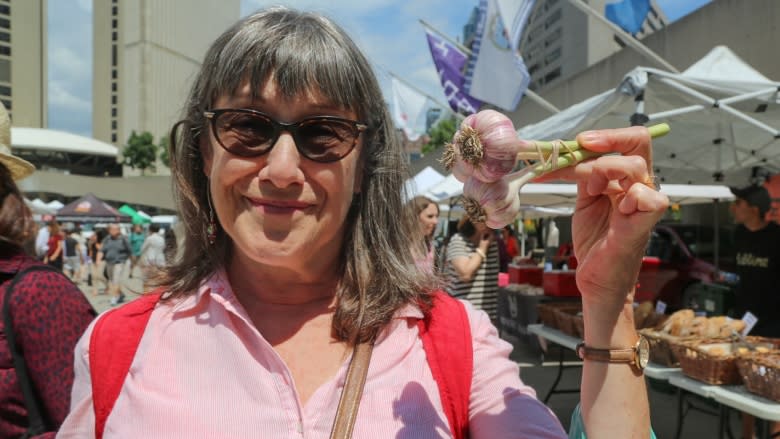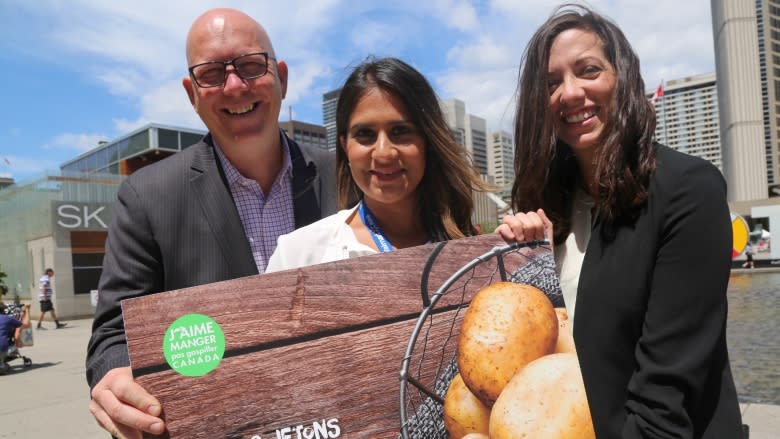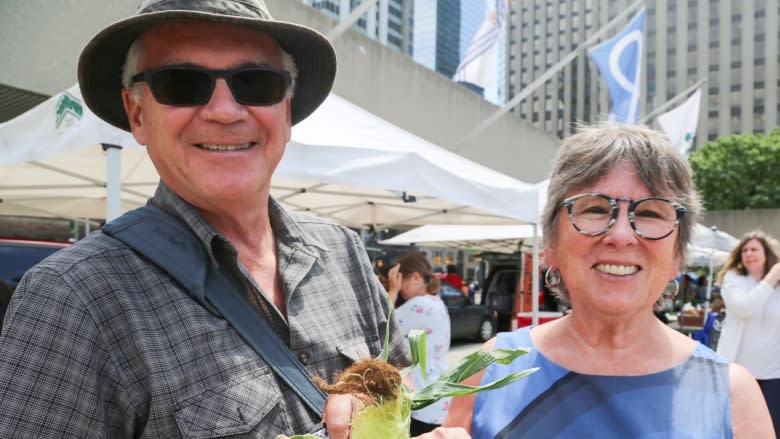'We are all guilty of it': Campaign to cut food waste launches in Toronto
Toronto has joined Vancouver and Montreal in the launch of a new education campaign aimed at reducing the 2.2 million tonnes of edible food that Canadians throw out every year.
Called "Love Food Hate Waste Canada," the campaign has tips to help Toronto households dramatically cut down on the average of 120 kilograms of edible food they toss each year.
It cost each of us as Canadians $1,100 a year,just on wasted food," said Greg Moore, the founder of the National Zero Waste Council (NZWC), the organization that launched the campaign.
Edible food waste includes leftover and untouched food. The city of Toronto says fruits and vegetables are the most commonly wasted food found in city green bins.
The campaign started in the United Kingdom 10 years ago. It has helped reduce consumer food waste in that country by 20 per cent, according to a a news release from the National Zero Waste Council (NZWC), the group that launched the Canadian campaign.
The NZWC is a group is made up of 160 organizations including businesses, non-government organizations and municipalities in Canada that share the goal of promoting waste prevention and reduction.
"How do we reduce the amount of food that we waste; how do we buy less; how do we buy more appropriately; how do we use what we buy," Moore said.
Coun. Mike Layton and city staff helped the NZWC kick off their campaign with retail partners Walmart and Sobeys at Nathan Phillips Square Wednesday.
Layton says the city is partnering with the private sector and municipalities to get the word out.
"Toronto has over 90 thousand tonnes of edible food waste a year and this is food that could be used in homes and could save people money in the end," Layton said.
'We are all guilty of it'
"We are all guilty of it. You forget about something in the back of the fridge, a head of lettuce, a couple of tomatoes, and it ends up going in the compost bin.
"The message of the campaign is if you shop smarter, if you store your food better and properly, and if you meal plan, then you can actually divert that food out of the green bin."
Walmart Canada has set out to achieve a goal of zero food waste in its own operations by 2025.
Anika Malik, the company's director of corporate affairs, says Walmart's approach is "food that is still good to be sold, should be sold, and for that reason you will see reduced food bags, dollar bag items, things that can be used tonight to make banana bread or pasta sauce.
"Food that can't be sold but is still safe, we partner will local food banks across the country to ensure that that food ends up on someone's dinner plate that evening," Malik said.
Renee Hopfner, the director of social responsibility for Sobeys, says the key is educating consumers to change their behaviour.
"It's really about learning how to keep your food fresh, and [using] as much of your food as possible. We want to avoid food in the landfill," she said.
"We have a food rescue program that empowers our stores to partner with local community groups to ensure that whatever food can't be sold, can make it to the mouths of people that need the food."
Some Toronto residents shopping at a market at Nathan Phillips Square where the campaign was launched have already changed their shopping habits.
"I buy smaller quantities more often now. Check the fridge before I go shopping to see what we really need, and that works really well," said Anne Atkey.
"For example, we bought several things today and we know we are going to use them in the next three days."
Michael Dewson agrees.
"We are always very conscious of food waste so we are always checking things in the fridge to see what we should use first and make sure we don't let stuff spoil," he said.





